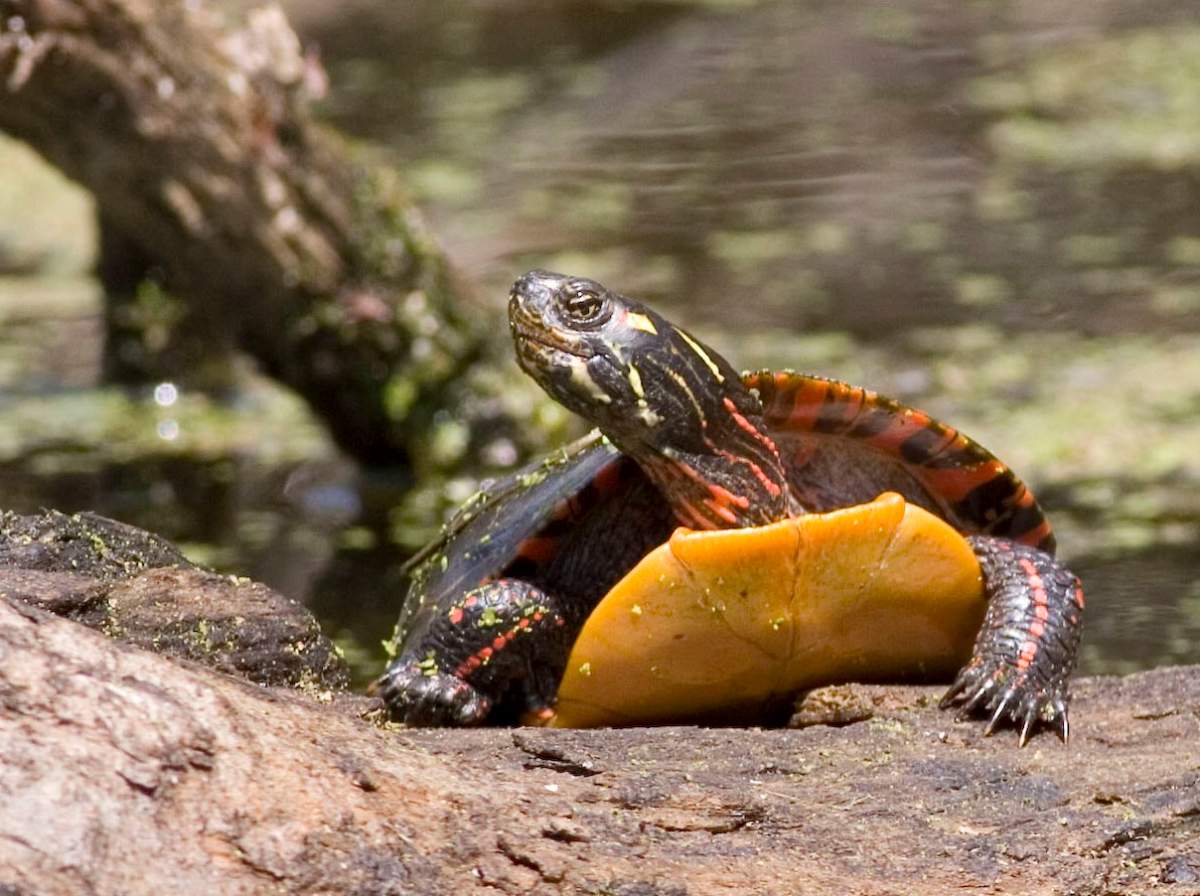The Guelph Humane Society says it has already had a few calls about turtles on the road so far this spring and there will likely be more.

The organization is reminding drivers to watch out for the slow-moving reptiles this time of year, especially as a heat wave moves into the area.
“Looking at this forecast, with a few hot and humid days in a row, we expect more turtle calls to start coming in,” said Lisa Veit, the humane society’s associate director.
Turtles are in their egg-laying season until July and often choose sandy, gravel shoulders along a road, the humane society said. Crossing the road puts them at significant risk of injuries or even death.
According to the humane society, all eight native turtle species in Ontario are either endangered, threatened or of special concern, and road mortality is second only to habitat loss as a factor of declining populations.

Get daily National news
Along with slowing down and stopping, the humane society is also asking drivers to help turtles cross the road.
“If it is safe to do so, please consider stopping and giving them a helping hand,” said Veit.
“Remember to always move a turtle across the road in the direction that they are headed. And with the exception of snapping turtles, you can actually pick up the turtle with two hands — one on either side of the shell — and carefully transport them across the road.”
Viet said to be extra careful if it is a snapping turtle and to use a car mat to drag them across the road.
She recommends approaching a snapping turtle from behind, firmly gripping the turtle at the rear of its shell on either side of the tail, and sliding it onto the car mat. Then slide the car mat across the road.
Anyone who helps a turtle out should disinfect their hands afterwards as turtles can carry salmonella.

Injured turtles should be reported to the humane society at 519-824-3091. They ask that it be removed from the road and placed in a box.
“Turtles are incredibly robust and capable of recovering from extensive trauma to their shell,” Veit said.
“Our team can assess the injuries and provide supportive care. If rehabilitation is possible, we’ll arrange for one of our volunteer wildlife drivers to transport the animal to a wildlife rehabilitation centre that specializes in turtle care.”
Dead turtles should also be reported because if the turtle is female, her eggs can potentially be extracted, incubated and hatched for release.








Comments
Want to discuss? Please read our Commenting Policy first.